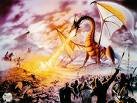Heya Blog. I picked up a novel the other day, a sci-fi book. After traipsing through Victoria's used book stores, Chapter's, and Monroe's, I came away with two books of pretty good value I think. It wasn't easy though: I had to pass up at least one book I wanted, and the fellow with me also had to leave one on the shelf because they were both just too damn expensive. They weren't rare or particularly special reads in any way. Mine was first published in 1956 and then re-published again and again, so at least it seemed to be popular in surges, and now that it will soon be made into a movie starring Will Smith (I Am Legend written by Richard Matheson) it is popular again now running in trade paperback with a "cool" altogether too busy cover leaving nothing for the imagination at price of $20 ($21.98 plus taxes). The other book was close to $40 bucks because it was hard-cover and the was no room to budge on the price despite its soon appearance in paperback. Those, I guess were the snakes.
The ladder on which my spirits somehow began to climb again were the good books I found: King James Version of the Bible, and Spin by Robert Charles Wilson (no "good book" pun intended here, and I've nothing to say about the man with two first names, but there it is). I like the James version if nothing other than for its language stemming from Tyndale who did a major overhaul in 1520 something; so, just after Shakespeare. He is "the father" of the James and much of his language remains intact in the James version, and in a ways when I read passages I think of Shakespeare and his gentleness.
But, what I originally logged on to say was about Spin and how its structure is designed to lead into the novel like the bottom rungs of a ladder to get one up. Now this is a technique I've come across before because I think it is fairly common but I've just not really noticed it or paid any kind of attention. In retrospect, the opening is so crucial and has to instigate some kind of relationship with an audience. This technique, if that doesn't sound arrogant for me to do so, is something like the once-upon-a-time, but it is less abstract than that, and although it does tap into some mystical area of the reader, who I assume has some feeling of want or need to be tapped into or why else are they reading, I'll call it the "tapping the core" technique. I may come up with better name someday, but for now there it is. Here goes; the tap: This novel focuses on three main characters who are put in this sci-fi novel which requires some ability of the reader to maintain a state of suspended disbelief. However, even sci-fi can only go so far, thus the introduction of "hard sci-fi" to add an air of plausibility. The "tapping" works to the same ends: to make the situation reasonable. I'll get to the meat. Because the novel begins with the main characters in their youth, we might expect them to do anything and be set in virtually any situation. Myself, as with all I would expect, remember my youth and wouldn't be so surprised to be put into a totally unimaginable world at the drop of a penny. In fact, I'm sure this happened many times: have you ever walked up to play a solo piece at a piano recital where you are obviously the worst of three kids in your group and you know that third place, while still a prize, is totally circumstantial and kind of pathetic (poor kid in third, give 'm a ribbon and some candy)? What's with giving a third place when there are only three people...are these adults crazy or have I entered another plane of existence here where pianos are the altar of some religious cult on which parents rituistically sacrifice the young? Did they expect me to tap into some spiritual epicenter? Had they met Mrs. Bee Bruin my piano teacher, had they met any piano teacher who keeps time with a yard stick that doubles as a reminder of missed notes with a crack on the knuckles? Maybe not. Youth, yes in youth stange things are afoot. The point is, small happenings can make you feel alien when your a kid, but when we get older we get stiff and protect our self against feeling alien and we question: what is this, is this believable? So it is that connection with our own lives, our youth, that Wilson is tapping into and depending upon to drive some kind of affinity with his characters, their circumstances, the plot, and overall something we can hold onto through novel to make it much more than believable, hopefully that drops somewhere down the list, but primarily enjoyable.
Tapping, of course, works well in establishing chronology, and that makes sense too, depending I guess.
Monday, July 16, 2007
Subscribe to:
Comments (Atom)

